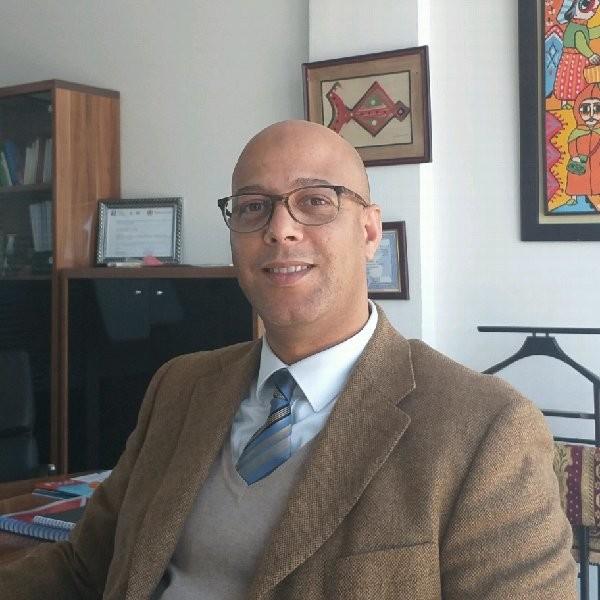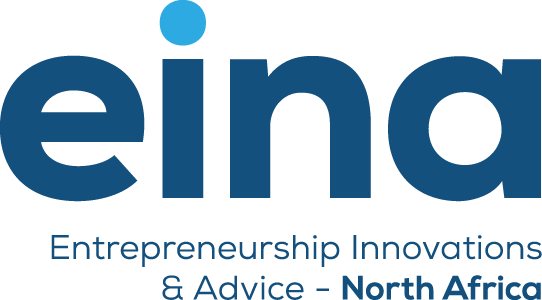Abdessamad Sentissi, coordinator at the Tamkeen Center: "MSMEs must pool their resources, in town and in the countryside"

Par Sabine Cessou, journaliste et consultante pour Eina4jobs
Abdessamad Sentissi is the Coordinator of support programs at Tamkeen Center, a project accelerator. This network, which has contributed as a partner to the implementation in Morocco of the Souk at-Tanmia regional project to support small businesses led by the African Development Bank (AfDB), is physically present in five cities (Oujda, Meknes, Rabat, Casablanca and Agadir). It acts in particular as a partner of Technoparks, to support companies that set up there when they open, such as in Oujda, Meknes, Tangier and Agadir.
How work Tamkeen incubation programs?
Our support is first local, without confusion between "program" and "incubator", because there is a plethora of programs that are ephemeral in nature. These testify to the rise of the issue of entrepreneurship over the past 10 years. A good thing, because before, we just talked about youth unemployment. For 20 years in Morocco, there has been a structuring program, led by the National Initiative for Human Development (INDH). This program is general and permanent, and includes entrepreneurship. However, support for entrepreneurship is generally considered from a financial angle, although it is not the only solution.
Are "soft skills", i.e. relational intelligence and specific communication skills, required to undertake?
Before discussing soft skills, a term to which I prefer "mindset", let's first talk about hard skills, i.e. existing technical skills. In other words, what can you do? Are you ready to unlearn and relearn? Here lies the first obstacle to entrepreneurship.
Fortunately, "hard" skills exist. Thousands of young technicians - in IT, mechanics, electronics and many other fields - graduate from vocational training centers every year. People who have learned jobs turn out to be more ready to undertake than students from university courses who embark on entrepreneurship for lack of employment. In their case, entrepreneurship requires retraining, a more cumbersome process. Today, we see more entrepreneurs by necessity than by vocation. Is self-employment, a palliative to unemployment, sustainable? The failure rate seems very high.
Doing a bootcamp in Casablanca then an acceleration program in Agadir, is that dispersion?
Indeed, in time and in space. A bootcamp can spark vocations and inspire people to think differently, but it's not enough. Young project leaders looking for several small grants generally follow several programs, but in 7 cases out of 10, they are not followed by a structure.
Ideally, all initiatives should be connected to something else, with a direct and homogeneous follow-up. What could be better than a physical center, such as a Youth Center or a specialized local association? I insist on this point: a personalized follow-up is necessary in all phases of the business project, such as the course traced for an athlete or an artist, with a system of nurseries which represent physical and sustainable spaces.
The act of entrepreneurship does not consist in seeking credit but in having a life project, a vision. For example, a young person who has a food truck today may think that tomorrow he will have one or more restaurants. Another who repairs bicycles can imagine creating a chain of repair shops. From this point of view, seeking and obtaining advice is a public service, just like public health or education services. A place where you can get information, take training and meet professionals is an anchor point, a catalyst.
Do you know an example of that kind of approach ?
Yes, there is a pilot project in Rabat-Salé-Kénitra of the Regional Center for Young Agricultural Entrepreneurs (CRJEA), designed as a place where you can find people in the trade, with the fiber and the skills to follow young people in the long term, helping them to establish themselves in a market by finding partners, outlets and customers. This type of center also works like an agora: it allows people to meet.
The agricultural world has a clear and precise policy: a structuring program, the Green Morocco Plan, has set quantified objectives over 10 years. It was followed by Génération Green, again over 10 years, carried by a single entity, the Ministry of Agriculture, which has full power and responsibilities. On the side of the beneficiaries, there is a microcosm similar to what we see in business, with subsistence farmers who have their small plot and/or their small livestock, MSEs and SMEs, with inhabitants of rural areas who have hectares and have increased in size, then the large holdings which belong to investors.
The Ministry of Agriculture equips the smallest operators through subsidies. If you want to redo your well, a solar pump can be installed, and if you want to optimize your irrigation, it is possible to have it 100% financed for an area of less than 5 hectares.
In order to fight against fragmentation, the ministry encourages aggregation, cooperatives and economic interest groups (GIE) to gain in size, commercial and economic strength. This is done in the countryside, but unfortunately not in the city, where young people rent premises that they do not need just to build a file and obtain credit. However, having underutilized offices or workshops already means losing competitiveness.
Is it all about sharing the means of production as common goods?
This model is alive in Africa, Asia and Latin America: the idea behind it is that the different operators in the market are not just competitors. The tanners of Fez, for example, operate in a cooperative to pool equipment or workplaces. Instead of each buying a mechanical lathe, why not create a workshop with a common lathe? Factories which are going to deliver or get supplies from the same place can charter a single truck, instead of underutilized means of transport which represent additional loads... In the countryside, we have this culture, but not in the city.
Why do you say that access to financing is not a panacea, when it seems to be lacking?
Tamkeen has launched an acceleration program for MSMEs which will offer 10% of time in coaching and marketing advice, and put the rest of the budget on the go-to-market: immediately, it is a question of finding orders, customers, and if necessary financing. The first step is to establish companies in the market. To think only of financing is to run the risk of creating debt and failure.
If I borrow 10 MAD I have to make 100 in turnover, and not 20. In addition, Morocco has a "credit bureau", a central risk office: if you have gone through the Intelaka box (Tamwilcom's business financing support program, editor's note) with a failure, you will be stuck. When you want to come back to borrow, you will be notified of your outstanding payments.
Helping entrepreneurs is not giving them credit, but helping them to find customers and knowing how to tell them: "This logo does not reflect your strategy, or this packaging, it must be reviewed". In fact, the majority of entrepreneurs need go-to-market - just as much, if not more, than finance.
